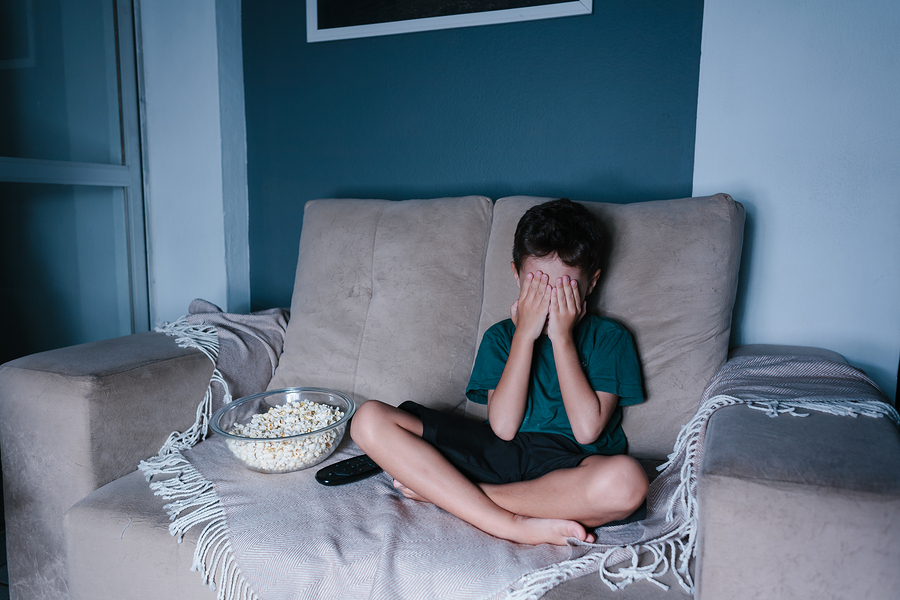 Do you close your eyes during the scary parts of a movie?
Do you close your eyes during the scary parts of a movie?
I do not like to watch horror films. I never have. Perhaps I am way too visual a learner, but those images during the scary parts of the movies would stay in my head for days, haunting my dreams, turning them into nightmares. So I did (and still do) the only sensible thing at those moments of a movie. I close my eyes. And I try to convince myself to open my eyes. I tell myself, it is only a movie. I tell myself that what I imagine in my head about those moments is usually much worse than what will be depicted. I use any number of schemes to try and keep my eyes open. But to no avail. It is easier to close my eyes and wait for it all to be over.
Abraham did not have that luxury.
I think if I were Abraham in this first reading, I would have wanted to close my eyes. You see, Abraham knew two truths at this stage of the game. God had promised him to be the father of countless generations in faith, granting him the gift of Isaac at an impossible age. And now God was telling him to sacrifice that same son, the only possible way God could bring about the promise. And what the lectionary leaves out in presenting this story for the sake of brevity is that Abraham traveled for three days with Isaac. Some Jewish commentaries have Isaac as a young adult, about 30. Others have him as a small child. Either way, for three days Isaac saw the wood for the sacrifice and the implements, but no actual sacrifice. Did you ever wonder how many times Isaac asked his dad about that? How many times the knife of pain and unknowing went through Abraham as this inquisitive young boy/adult said: What are we going to slaughter, dad? Where’s the sacrifice, dad? Can I help slaughter it, dad? I’m sure that Abraham wished with all of his soul that he could just close his eyes until the scary part was over.
Of course, we know the end of the story. Abraham didn’t. Can you imagine what that was like for him? All he knew, all he hoped for, all he had believed was seemingly coming to an end. How did he make that walk for three days? How did he keep putting one foot in front of the other? We never get an ‘exit interview’ of Abraham, a man on the street, stick-a-microphone-in-your-face-in-the-middle-of-the-tragedy kind of story that might give us insight into his thought processes. We just have the record of his faith. “Here I am,” he says, when God tells him to set out. “Here I am” he says, with gritted teeth, just before the knife falls. And we hear God’s response: “I know how devoted you are to me…” Somewhere, Abraham found the strength to put one foot in front of the other, to keep walking, to keep trusting.
And, did you ever wonder about the promise given to him? “I will make your descendants as numerous as the stars in the heavens”? Because even now, Israel is among the smallest of nations. Yet, here is what I know: though I have no Jewish blood in me at all, I can stand before you and tell you that I am descendant of Abraham. Though my testing in my walk of faith has not been nearly as life and death as Abraham’s was was, there comes that moment when you have to make that same risk of faith that Abraham did. And every parent who has struggled watching a critically ill child in the hospital, every son or daughter diagnosed with cancer, every human who has ever run into a wall in relationships or job or life, becomes a son or daughter of Abraham. For Abraham’s testing is our testing.
- Will you believe in something that you cannot see?
- Will you trust in a loving God even though all that you put your hopes in seems to be crumbling around you?
- Will you keep walking in faith, not because you see the end, but because it is what people who are in relationships do – they keep walking through the difficult moments, not with eyes closed, but with eyes wide open, ready to spy the ram, ready to hear the voice, ready for God to redeem and save them.
Abraham trusted that there was a future beyond what he could see or figure out. The disciples got a glimpse of it on that mountain, but were told that the path lies through suffering and death. You and I are invited to that same trust, in very concrete ways this Lent.
Will you continue that conversation we began last week in our diocese, to look at racism in all its forms – not knowing where it might take you, or what it might cost, but knowing that you have to walk that walk to be faithful to God’s call?
Perhaps it is the call to work one of the Focus suppers, where you not only prepare dinner, but you sit down and eat with those for whom you prepared the dinner?
Maybe there is a huge rock, an elephant in the room of unforgiveness that no one talks about – what is the first step you can make?
Will you trust God, even in the darkness, even when you can’t see how it will turn out? Will you keep your eyes wide open, your heart still trusting God, even during the scary part…?
